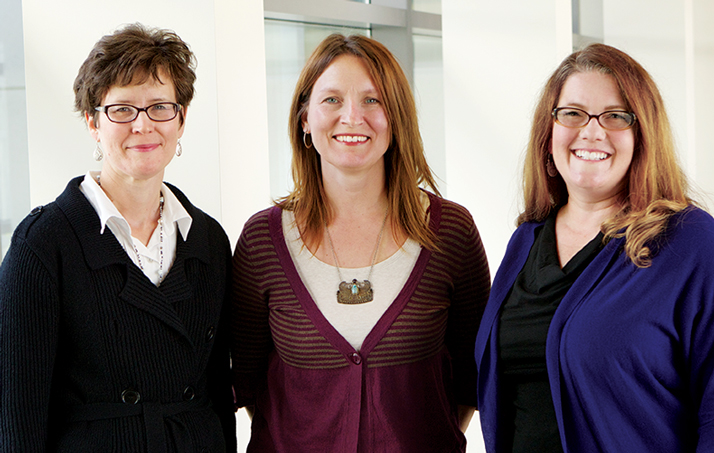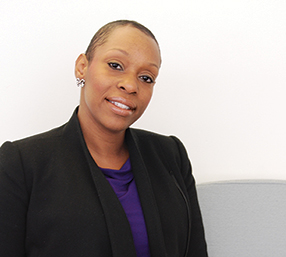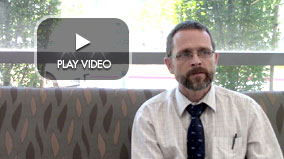
Lending a helping hand
Supportive services introduces a new team, more resources
Tiffany White, 38, is a single mother of three young children who has advanced breast cancer.
In addition to dealing with her fears about the illness, she is grappling with numerous day-to-day, logistical problems such as finding adequate child care and financial resources to cover expenses related to her treatment.
“I need to relax sometimes and not be around the kids,” says White. “A support group would be very good for me, but I need more help in the home.”
Social workers with the UC Davis Comprehensive Cancer Center’s support services work with White and other patients to help them solve some of the unexpected, and often daunting, logistical challenges of their illness. They also provide emotional support to patients throughout their cancer journey. Support services are a key part of the cancer center’s commitment to integrative, supportive care.
“Helping patients and their loved ones identify their next step is what I do at the UC Davis Comprehensive Cancer Center,” |says Angela Usher, one of two licensed clinical social workers who work in the cancer center’s supportive services program. “The next steps may be applying for disability benefits, telling their minor children they have cancer, asking for help from the community, figuring out what it means to finish treatment, or making quality-of-life decisions. I am there to help guide and coach them to their next best step in their journey.”
Usher is working to assist White with a small grant to help her cover the cost of child care so that she can attend a support group.
The services offered through the program are expanding at UC Davis to include social work interns who will work directly with patients, a psychiatry clinic, a volunteer coordinator and possibly a spiritual resource, such as a chaplain. The team also works closely with the cancer center’s WeCARE! Community-Based Cancer Peer Navigator program, which pairs newly diagnosed cancer patients with specially trained cancer survivors.
The expansion of offerings reflects a national trend of evolving standards for psychosocial care in oncology. The American College of Surgeons’ Commission on Cancer developed standards of care that include supportive care. Development of the social services program also is an accreditation requirement for receiving National Cancer Institute (NCI) status as a comprehensive cancer center, as UC Davis did last year.
Part of the NCI requirement is that cancer centers offer all patients “distress screening,” an expansive interview process in which a patient is asked generalized questions about their concerns and life changes related to their cancer. Questions delve into issues such as hair loss, changes in sexual functioning, sleep, weight loss and fears of dying. Social workers in the cancer center supportive services program hope to begin a pilot project of the distress screening in July and adopt a formal screening process by 2015.
“It allows us to look at how we can provide support and help before there is a crisis,” says Usher.
Jena Cooreman, another licensed clinical social worker at the cancer center, says she sometimes feels “like a detective on the hunt for the perfect resource” for patients. Their needs are as varied as the clientele the cancer center serves, she says. Sometimes she helps arrange transportation for patients; other times she helps them interact with their insurance companies or find resources through the state disability program.
“The overall goal is to help them cope with their illness and cope with the consequences of their illness, so they have the best life possible,” she says.
“Sometimes patients’ needs are concrete — they need someone to help cook their meals, or they need transportation assistance or information about co-pays for insurance,” Cooreman adds, saying she and Usher then work to make referrals to outside programs for patients.
“Sometimes their needs are emotional. They need to be heard,” Cooreman says. “They need a place to safely express their frustrations and their fears.”
White says she has found the services to be extremely helpful.
“She was very informative on what to do for different benefits for cancer patients,” White says of Usher’s assistance. “She answered questions for me, and she told me about the programs she knew of.”
It is typical of what the social workers try to accomplish for the patients.
“We are here so we can help bolster them and help them through their cancer journey,” adds Cooreman.


